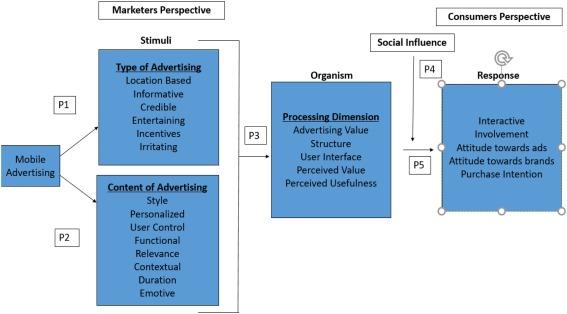Curriculum Manager: Essential Skills and Tools for streamlining Education Programs
Are you seeking an impactful role in education technology at universities, colleges, or schools? Becoming a Curriculum Manager might be the perfect career for you. This position is pivotal in shaping modern learning experiences, ensuring curriculum design meets evolving educational standards and leverages cutting-edge technology. In this comprehensive guide, we’ll delve into the skills, tools, benefits, and practical tips you need to succeed as a Curriculum Manager.
What is a Curriculum Manager in Education Technology?
A Curriculum Manager is responsible for designing, developing, and maintaining educational programs that align with academic objectives and digital innovation.Whether at a university,college,or school,Curriculum Managers collaborate with educators,administrators,and technology teams to deliver dynamic,engaging,and effective learning content.This role bridges traditional teaching methods with modern education technology, focusing on continuous advancement and streamlined program delivery.
Essential Skills for Curriculum Managers
To thrive as a curriculum Manager, you’ll need a diverse set of skills that blend academic expertise, leadership, project management, and tech-savvy know-how. Below are the keystone competencies that employers in education technology consistently seek:
1. Educational Program Design
- Curriculum advancement: Expertise in designing course structures, learning objectives, assessment strategies, and instructional materials.
- Alignment with standards: Ensuring programs meet accreditation requirements and institutional standards.
- Pedagogical innovation: Applying the latest teaching methodologies and blended learning strategies.
2. Technology Integration
- EdTech platform proficiency: Experience with Learning Management Systems (LMS), such as Canvas, Blackboard, or Moodle.
- Software skills: Ability to use digital tools for curriculum mapping, content creation, and data analytics.
- Adaptability: Staying updated on emerging education technologies and integrating them seamlessly.
3. Project and Change Management
- Time management: Overseeing multiple projects and deadlines across departments.
- Collaboration: Working efficiently with faculty,IT teams,and academic leadership.
- Change leadership: Guiding institutions through curriculum updates and technology adoption.
4. Data-Driven Decision Making
- Data literacy: Interpreting program analytics, student outcomes, and engagement reports.
- Continuous improvement: Using feedback and data insights to refine programs.
5. Dialog and Leadership
- Stakeholder engagement: Clear communication with teachers, administrators, and students.
- Presentation skills: Effective delivery of curriculum plans and professional development sessions.
- Empathy: understanding diverse learning needs and fostering inclusive program development.
Key Tools for Curriculum Managers in education Technology
Mastering the right tools is fundamental for streamlining educational programs and enhancing your effectiveness as a Curriculum Manager. Here are the most valuable resources in today’s digital learning environments:
Learning Management Systems (LMS)
- Canvas, Blackboard, Moodle: Core platforms for managing courses, assignments, and student communications.
- Google Classroom: Widely adopted in schools for virtual lesson delivery.
Curriculum Mapping Tools
- Curriculum Trak, Atlas, chalk: Tools for visualizing curriculum alignment, tracking standards, and reporting progress.
Content Creation Software
- Articulate Storyline, Adobe Captivate: Platforms for designing interactive e-learning modules and multimedia resources.
- Quizlet, Kahoot!: Engagement tools for formative assessment and active learning.
Collaboration and Communication Platforms
- Microsoft Teams,Zoom,Slack: Facilitating collaboration among curriculum teams and stakeholders.
data Analytics Tools
- Power BI, Tableau: Visualizing learner data to inform curriculum changes and drive performance.
Benefits of Becoming a Curriculum Manager in Education Technology
Pursuing a role as a Curriculum Manager offers a host of professional rewards. Let’s examine the top benefits that make this career both attractive and fulfilling:
- Impactful contribution: Directly shape student outcomes and institution competitiveness by streamlining curricula.
- Professional growth: Constantly develop new skills in educational innovation and technology integration.
- Collaboration: Build relationships across departments,from educators to IT experts.
- job security: High demand for skilled curriculum managers in universities, colleges, and K-12 schools.
- Flexible work: Many institutions offer remote or hybrid positions that accommodate work-life balance.
practical Tips for Aspiring Curriculum managers
ready to enhance your career prospects? Follow thes practical tips to stand out in education technology and streamline education programs effectively:
- Invest in professional development: Enroll in workshops, certifications, or advanced degrees focusing on educational leadership and technology.
- Build a digital portfolio: Highlight your curriculum design projects, edtech integrations, and program outcomes to employers.
- Network with peers: Join education technology associations and online forums to exchange ideas and find mentorship opportunities.
- Stay informed: Follow leading blogs and publications to keep up with trends in curriculum management and digital learning.
- Showcase soft skills: Emphasize collaboration, adaptability, and communication abilities during your job search.
Frequently Asked Questions About Curriculum Manager Roles
Is a teaching background necessary?
While direct classroom experience is beneficial, many Curriculum managers come from instructional design, management, or technology backgrounds. emphasis is placed on your ability to design effective learning experiences and integrate edtech solutions.
How can I advance my career as a Curriculum manager?
Pursuing leadership certifications, engaging in ongoing professional learning, and taking on strategic projects at your institution can pave the way for promotions into senior curriculum management or academic leadership positions.
What are the biggest challenges faced in this role?
Common challenges include managing stakeholder expectations,balancing innovation with compliance,and adapting programs rapidly to meet changing educational needs. Strong communication and project management skills are essential.
Conclusion: Launching Your Career as a Curriculum manager in Education Technology
Transitioning into a Curriculum Manager role at universities, colleges, or schools is an exciting opportunity for those passionate about impacting education through innovative technology. With the right blend of essential skills and powerful digital tools, you’ll be able to streamline education programs, enhance student learning outcomes, and drive institutional success. keep investing in your development, stay updated on the latest edtech advancements, and build a strong professional network. Your strategic contributions as a Curriculum Manager will help shape the future of education in a dynamic and rewarding career path.

